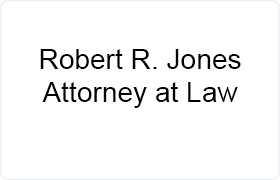Splendora Misdemeanor Lawyer, Texas
Sponsored Law Firm
-
 x
x

Click For More Info:
-
Robert R. Jones Attorney at Law
3526 E. FM 528 Suite 204 Friendswood, TX 77546» view mapCriminal Defense Expert Representation for Reasonable Rates
If you need representation, call me 24/7.
800-883-8760
Marshall Douglas Murphy
DUI-DWI, Criminal, Misdemeanor, Felony, White Collar Crime
Doug Murphy: Renowned Board Certified Criminal Law & DWI Specialist Serving Houston, Texas
Doug Murphy stands as a prominent figure in the legal realm of Houston, Texas, with a focus on Criminal Law and DWI Defense. His career, which began i... (more)
Mark W. Bennett
Felony, Misdemeanor, White Collar Crime, Federal Appellate Practice, Domestic Violence & Neglect
Houston, TX Criminal & Federal Defense Attorney
Since graduating from law school in 1995, he has dedicated his career to criminal defense, never stepping foot in the realm of prosecution. Mark posse... (more)
Judson Thornton Tucker
Clean Air Practice, Family Law, Divorce & Family Law, Misdemeanor
Status: In Good Standing
George Alexander Napier
DUI-DWI, Felony, Misdemeanor, Criminal
Status: In Good Standing Licensed: 12 Years
Robert G. Miller
Landlord-Tenant, Immigration, Whistleblower, Misdemeanor, Bankruptcy
Status: In Good Standing Licensed: 36 Years
Charles William Crowl
Sex Discrimination, Family Law, Misdemeanor, Felony, DUI-DWI
Status: In Good Standing Licensed: 13 Years
FREE CONSULTATION
CONTACTJonathan Julio Vela
Criminal, Personal Injury, Misdemeanor
Status: In Good Standing Licensed: 4 Years
 Robert Jones Friendswood, TX
Robert Jones Friendswood, TX AboutRobert R. Jones Attorney at Law
AboutRobert R. Jones Attorney at Law Practice AreasSpecializations
Practice AreasSpecializations



